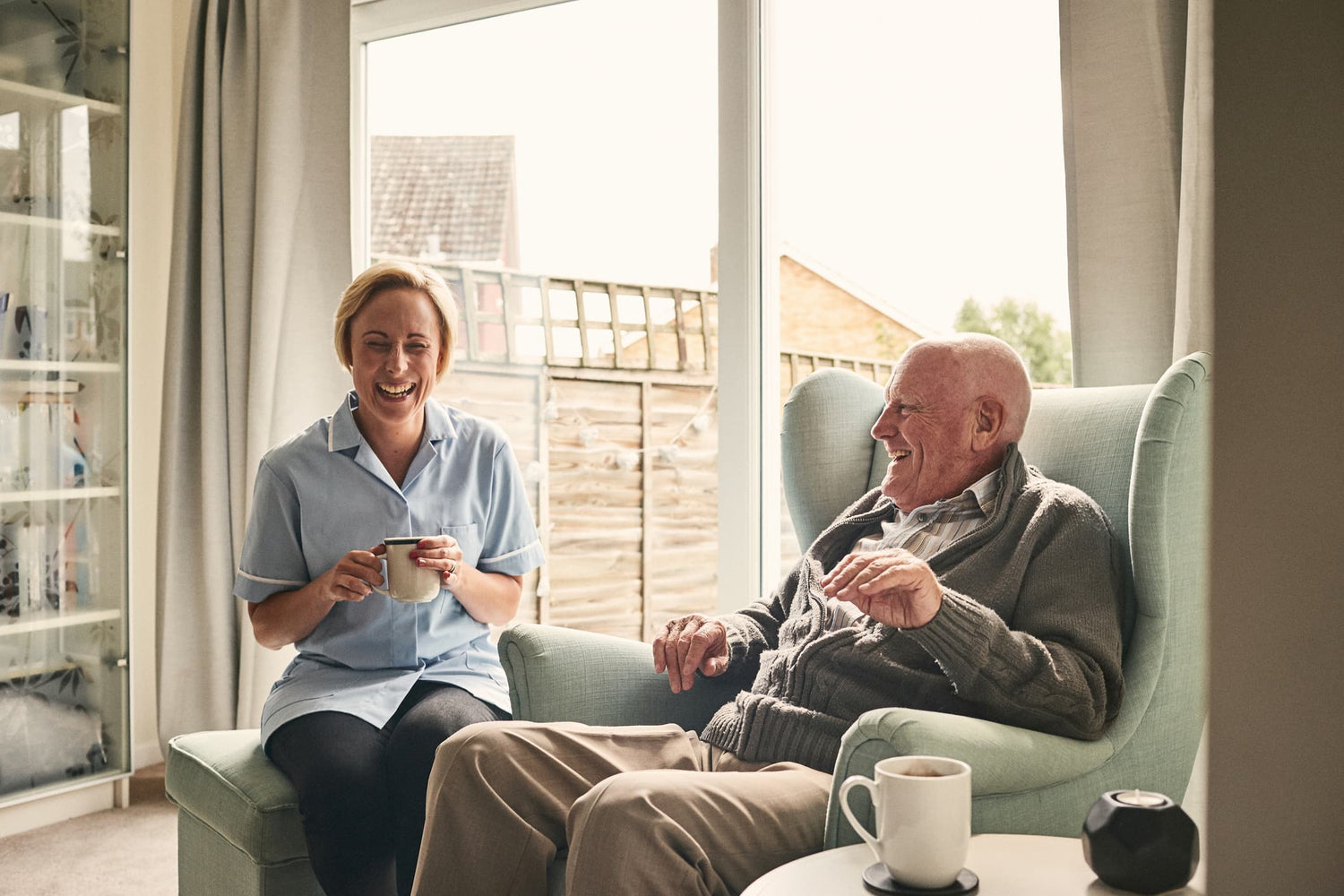Explore our collection of informative and educational blog posts to stay updated on the latest industry trends and expert advice.
The importance of physical and mental health in at-risk communities

The link between physical health and mental health may go deeper than you realise. Taking good care of your physical health is proven to have a positive effect on your mental wellbeing and vice versa. On the flip side, however, if one declines, then the other does, too.
Good physical health helps alleviate the symptoms of depression; while mental health disorders can also lead to worsened physical health. This intrinsic relationship means that staying physically healthy is extremely important. However, many people struggle to maintain good health, and this can be for a variety of different reasons. In aged care, healthcare and community service settings, this is especially true.
You can help change this! If you have a passion for health and helping others, you can help transform the lives of those who may not have the means or knowledge to pursue a physically healthy lifestyle.
Open Colleges’ CHC43415 Certificate IV in Leisure and Health helps train students to use leisure and health programs to support the psychological, social, emotional and physical needs of clients in aged care, health and community services. It’s an exciting, developing career field to get involved in—and showcases the important relationship between physical and mental health.
It’s more important than ever to focus on physical and mental health
While we have been forced to think differently about ways we can stay fit and healthy, maintaining good physical health is more important than ever. This is especially true for at-risk communities.
Maintaining a physically healthy lifestyle is important for your mental health. Exercise is one part of a balanced, healthy lifestyle. To improve mental wellbeing, other factors like a balanced diet, getting a good night’s sleep and limiting unhealthy habits like smoking and drinking alcohol can also contribute to this.
Promoting physical fitness in aged care facilities
In an aged care facility, physical exercise can help alleviate the debilitating effects of ageing on the body. Exercise programs reduce stress and also alleviate the symptoms of depression—which can heavily affect residents of aged care facilities. According to Beyond Blue, around 35% of residents living in aged care facilities suffer from depression. This figure is lower for elderly Australians not living in aged care, at around 10-15%.
A good exercise program can help lift both physical and mental health for elderly residents living in aged care.
Studies have shown that physical exercise can have great benefits for elderly peoples’ mental and physical health.
A study led by the University of Pittsburgh showed that elderly people who started a moderate exercise routine had improved brain health and memory.
While there have been no conclusive studies to suggest that exercise for elderly people in residential care facilities aids depression, there is evidence that found 16 weeks of regular exercise is as effective as antidepressant medication in the treatment of mild to moderate depression in the general population.
Another benefit of exercise is that it’s something you can do in a group setting. For some elderly people who feel isolated or lonely, participating in a low-impact exercise activity can also double as social interaction with friends.
Promoting wellbeing within communities
In community service work, you’ll interact with people who are encountering some difficulties. An important pillar of many community centres are their exercise programs. These help give young people or those in trouble a place to exercise, meet others and ultimately feel better as a result.
While exercise may not be able to address the problems that community services users encounter, there are still many other benefits. Keeping fit and healthy while interacting with others can help to boost self-esteem, confidence and mood; while having a routine (like participating in a weekly activity) can add structure to a person’s life.
By following a career in community services, you can help at-risk people from all works of life by organising events and activities.
Aiding health and physical wellbeing in healthcare
Medical fitness facilities and programs are becoming more common in healthcare environments. To aid recovery, an exercise program can boost patient health and overall happiness. However, the challenge is to design a program or routine that doesn’t impact on a patient’s current health issues.
Many people in healthcare facilities suffer from chronic pain. However, exercise has been proven to help alleviate chronic pain. Because exercise can help to improve muscle tone, strength and flexibility, this can help to alleviate pain. Exercise also releases endorphins into the body’s system, which can relieve stress and pain. That’s why you always feel so uplifted after a good workout!
When working with patients who are suffering from chronic pain, it’s important to design a workout routine with an understanding of the patient’s physical limitations. That’s why it’s vital for a qualified professional to plan proper exercise programs.
How can you help encourage healthy lifestyle choices in others?
Ultimately, a good physical exercise program can help lift the spirits of people from all walks of life. If you have a passion for exercise and for helping others, why not turn it into a rewarding career?
The CHC43415 Certificate IV in Leisure and Health will equip you with the skills and knowledge you need to step into a community-focused career.
Learn how to plan and implement group activities for your clients. Gain the skills to incorporate sociological ideas into leisure and health programming. And gain an understanding of how to provide recovery-orientated mental health services.
This leisure and health course is conducted online, which means it’s easier for you to fit your study around your life’s other commitments. However, you’ll still get hands-on, real-world experience with 120 hours of work placement as part of your course.
Learn how you can help others achieve a healthier, more fulfilling lifestyle and enrol with OC today.








